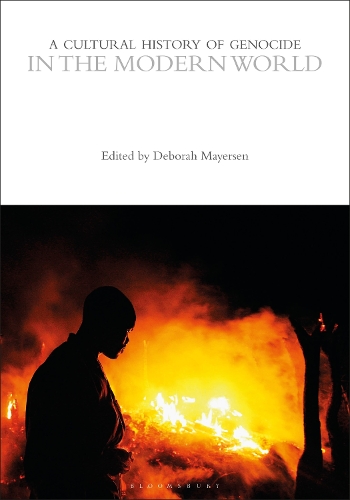
A Cultural History of Genocide in the Modern World
(Hardback)
Publishing Details
A Cultural History of Genocide in the Modern World
By (Author) Professor Elisa von Joeden-Forgey
Bloomsbury Publishing PLC
Bloomsbury Academic
29th June 2023
United Kingdom
Classifications
Tertiary Education
Non Fiction
304.6630902
Physical Properties
Hardback
264
Width 170mm, Height 246mm, Spine 20mm
640g
Description
The cry of never again reverberated around the world in the aftermath of the Holocaust. Yet despite the unprecedented horrors of the Shoah, and the subsequent creation of the Convention on the Prevention and Punishment of the Crime of Genocide, the frequency of genocide intensified in the post-Holocaust period. Since 1945 there have been genocides or mass killings in East Pakistan (now Bangladesh), East Timor, Indonesia, Guatemala, Cambodia, Rwanda, Bosnia, Darfur, Iraq, and elsewhere. This volume examines the cultural history of genocide in the modern world. It focuses on the period from the end of the Second World War to the present day. The volume examines not only the many genocides that have occurred during this period, but the beliefs and actions that led to them, the local and international responses, and the changing way in which genocide has been understood. It chronicles key developments, including the creation of international legal and political mechanisms to address genocide. It also considers creative and artistic responses to genocide, and how genocide is remembered and memorialized in the modern world. Finally, it examines the issue of genocide prevention, and the prospects for a more positive future.
Author Bio
Deborah Mayersen is Vice-Chancellors Postdoctoral Research Fellow in the Institute for Social Transformation Research at the University of Wollongong, Australia. She is the author of On the Path to Genocide: Armenia and Rwanda Re-examined (2014). She is also the editor of The United Nations and Genocide (2016) and the co-editor, along with Annie Pohlman, of Genocide and Mass Atrocities in Asia (2013).
